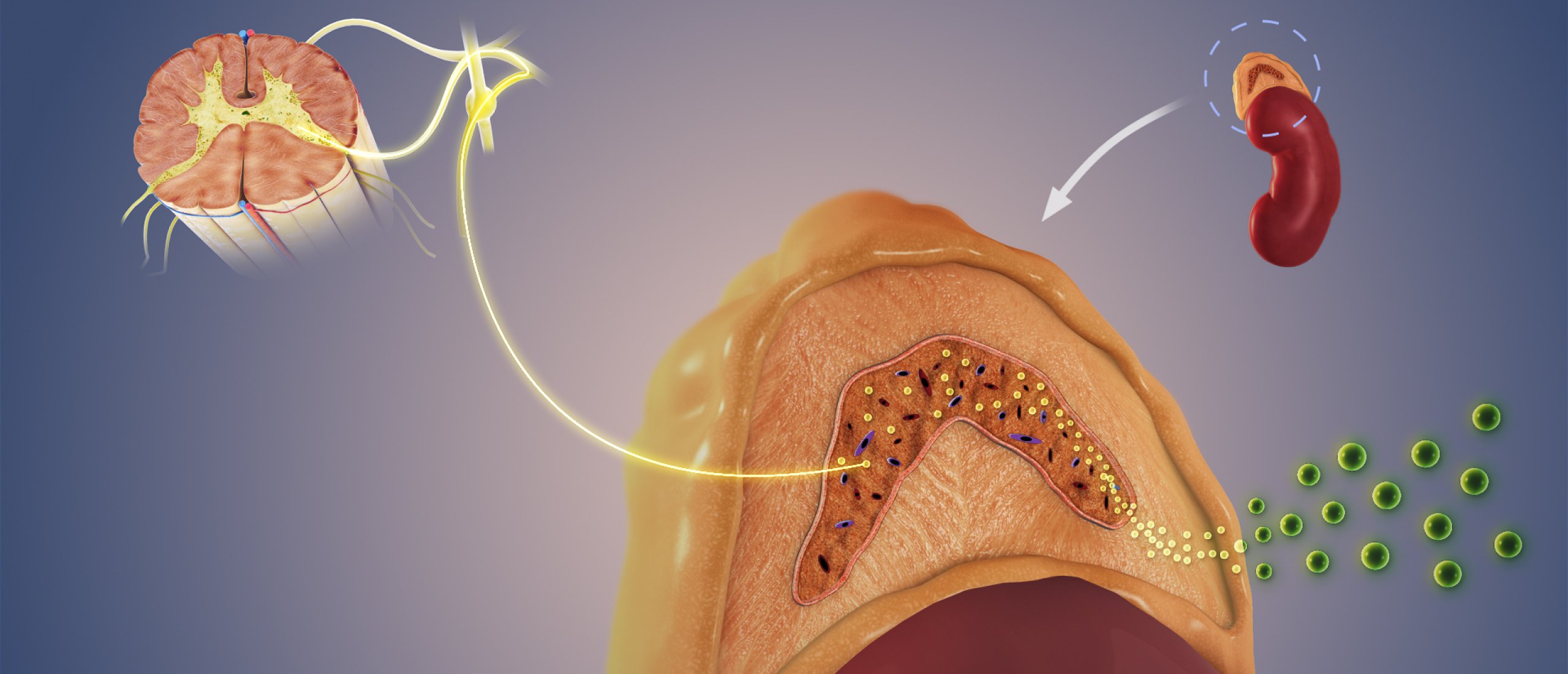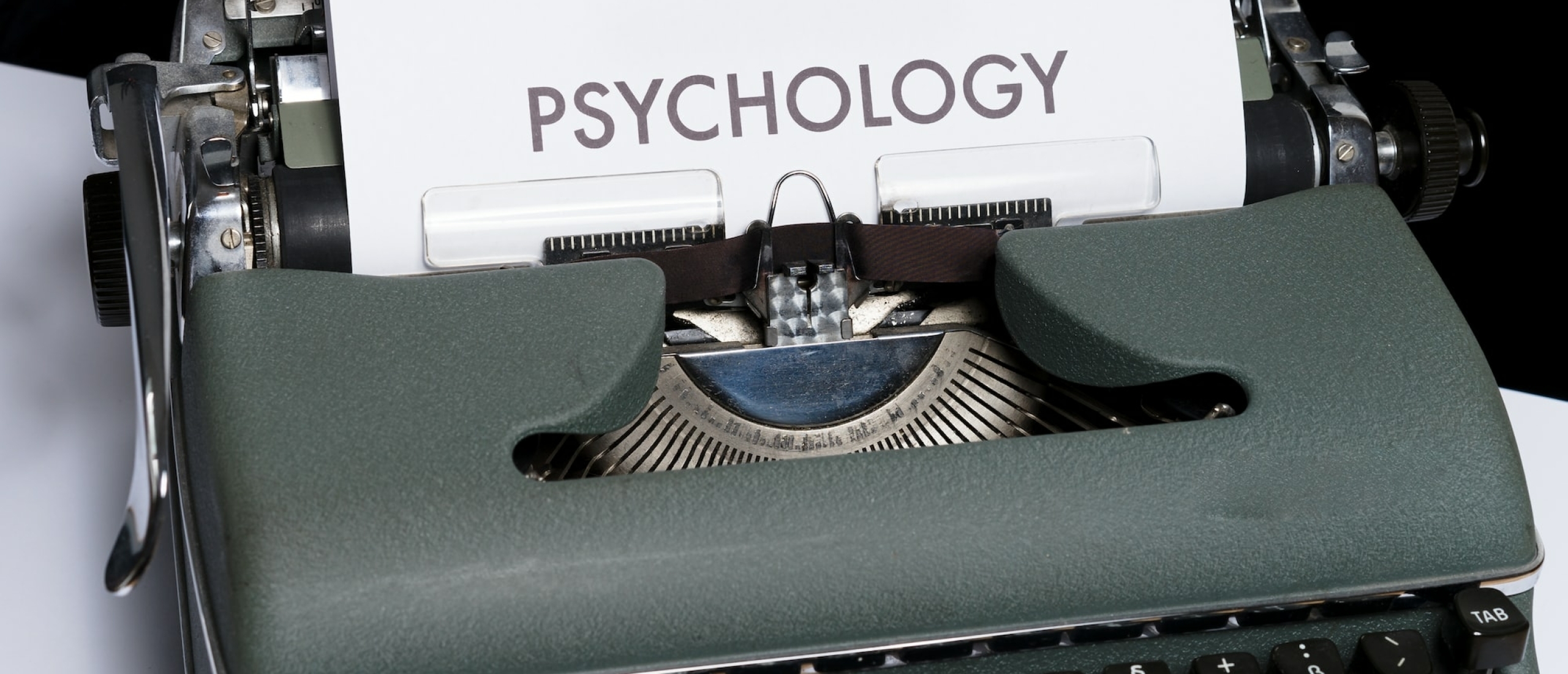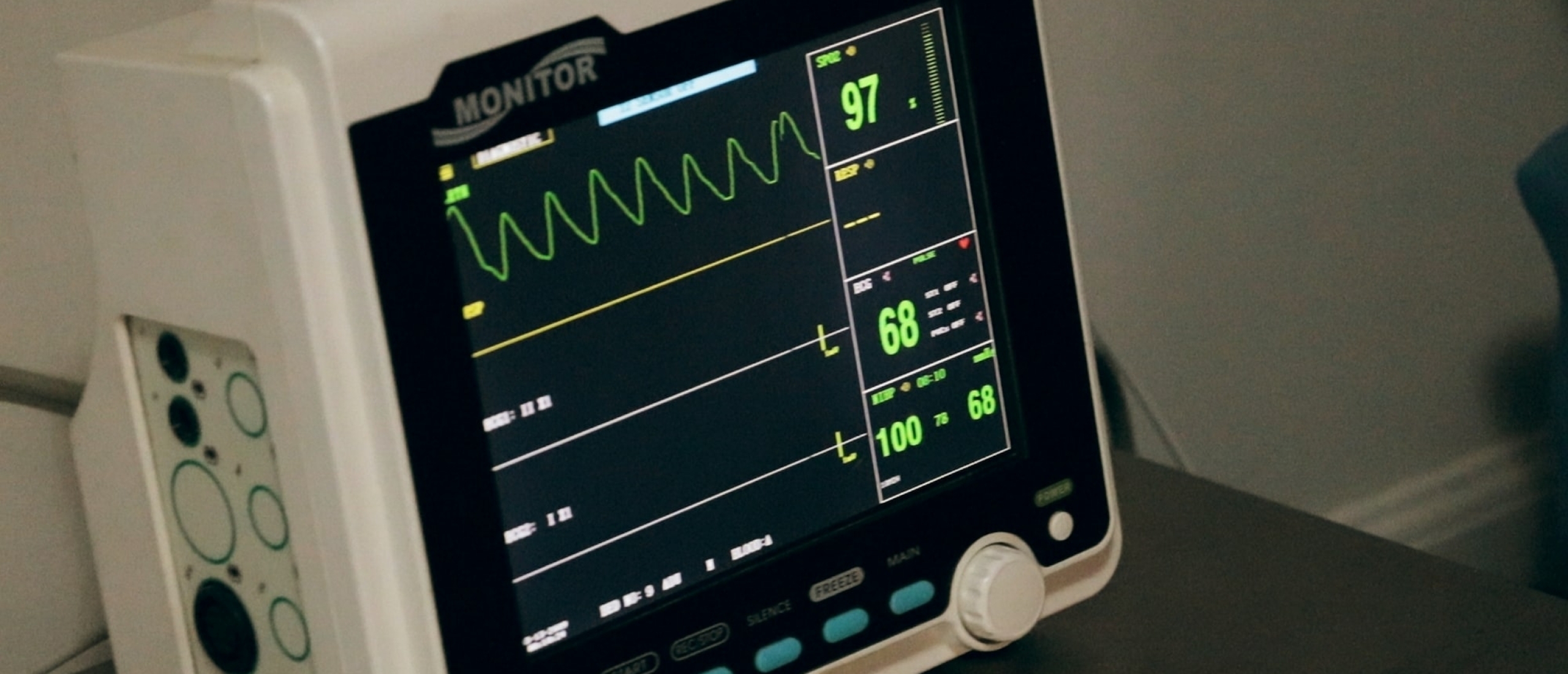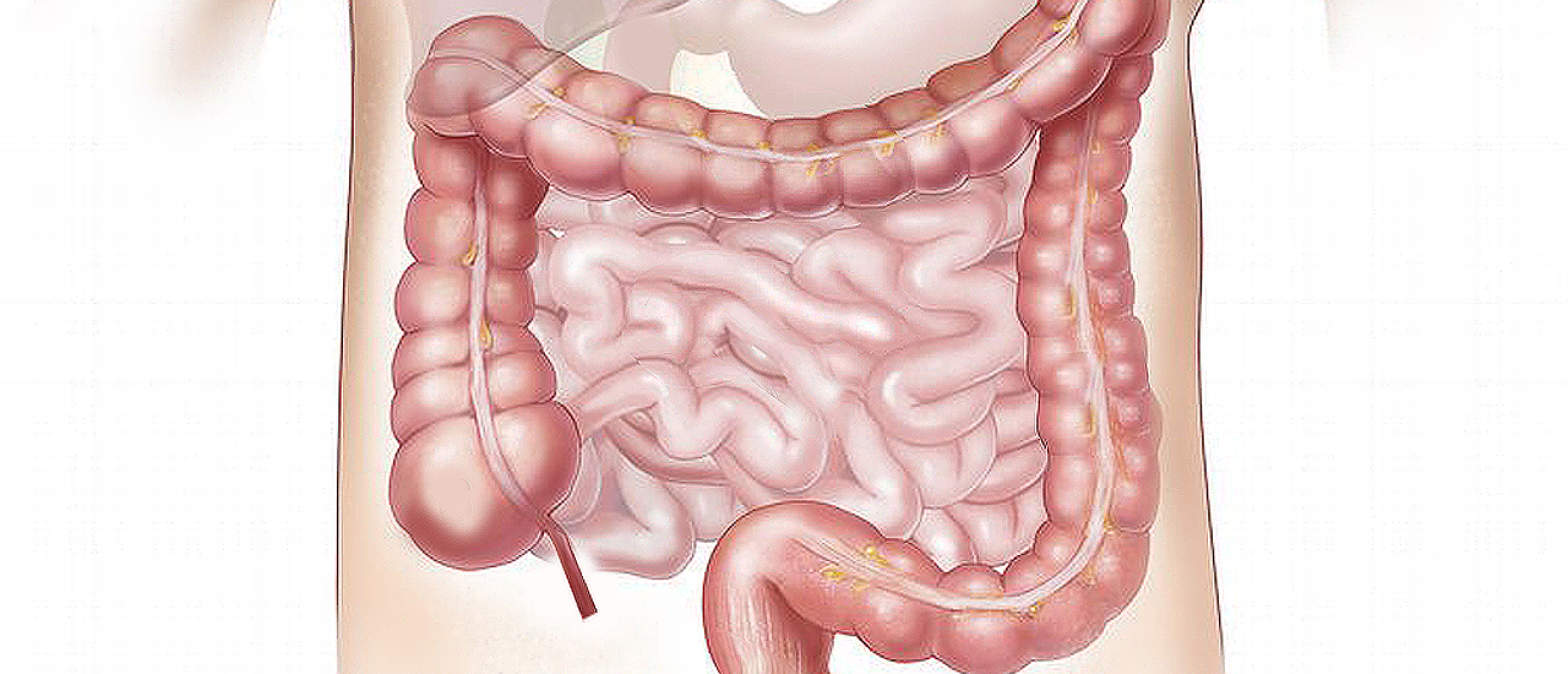
Many decisions are made under stress, and many decision situations are stressful themselves. Stress and decision making are thus related to each other. Often, stress will lead to risky and bad decisions. To avoid these low quality decisions under stress, we first must understand why they occur.
Stress and decision making go hand in hand
Many decisions must be made under stress. Examples of decisions that are made under stress include making financial investments, choosing a strategy for a company, choosing the correct alternatives in an exam or making the best decision in a medical emergency. In addition to this, many decision conditions can elicit stress responses themselves. The decision about whether to turn off life-saving machines for fatally ill patients or decisions that have far-reaching financial consequences (investing, buying a house) cause stress by themselves. It is thus clear that stress and decision making are connected, and that stress can therefore influence the quality of decisions.
How decisions are made
Decisions come in different sizes and shapes. They can concern making inferences, selecting an alternative with the best possible outcome, or making social and moral decisions. Decisions can further be categorized on the basis of the degree of certainty and uncertainty. This is because you may have more or less information at your disposal about the possible outcome of the decision.
If the outcome probabilities of a decision are specified, meaning that you are certain about the different possible consequences when you make a decision, you will likely make your decision strategically. This means that you are able to evaluate risk and reward for each alternative choice you may make. You will base yourself on rational and analytical thinking. Strategic decisions depend on executive functioning of the brain, which includes planning, categorization, and working memory.
If uncertainty is high, which means that you don’t have any clues as to what the outcome of your decision will be, then you will likely not opt for a strategic decision. Rather, you would base yourself on intuition and experience. You will use your feelings, either to serve as a proxy for information, or to guide your thoughts during the decision process.
For strategic decision making, the prefrontal cortex in the brain is important. It is the executive part of the brain. Perhaps interesting to know is that patients with lesions or dysfunctions of the prefrontal cortex prefer to choose riskier, and often disadvantageous, options than healthy persons. If you have read our earlier article about the difference between stress and anxiety, then you probably know that the prefrontal cortex is affected by chronic stress. This is because the stress hormone cortisol, released by the adrenal glands, modifies the activity of this part of the brain. The action of cortisol is important for the development of depression and impairs decision making.
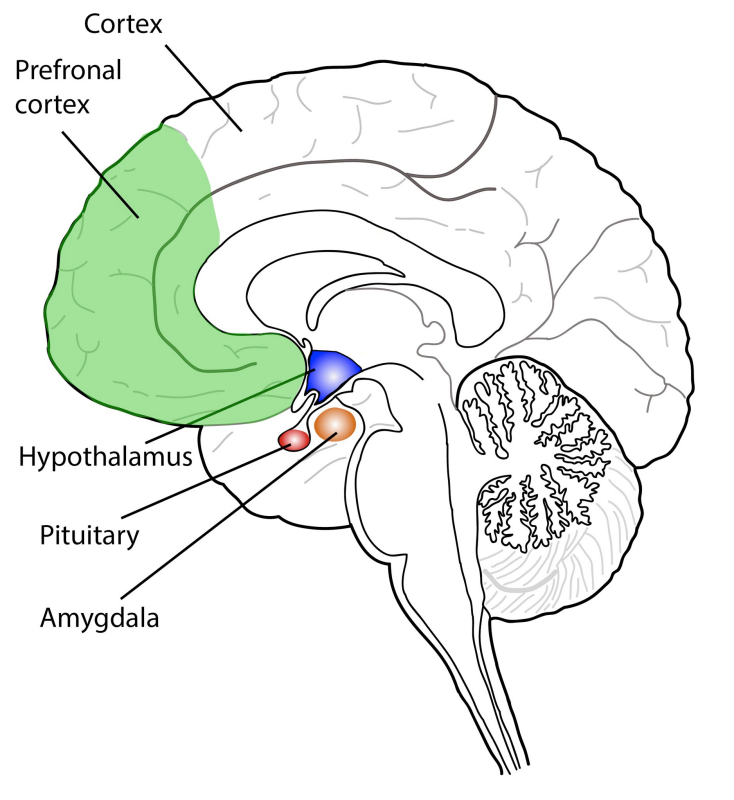 The prefrontal cortex, located above the eyes in the forehead and shown in green, is involved in cognition and is connected with the stress system in the brain (Hypothalamus, Pituitary gland and the Amygdala).
The prefrontal cortex, located above the eyes in the forehead and shown in green, is involved in cognition and is connected with the stress system in the brain (Hypothalamus, Pituitary gland and the Amygdala).
Decision making on the basis of emotion and intuition relies on the emotional part of the brain, which is also known as the limbic system. A component of the limbic system is the amygdala, which controls fear, anxiety and stress. The amygdala works together with the prefrontal cortex. The amygdala brings emotions and feelings to the prefrontal cortex. These may overpower the decision making process on the basis of reasoning and analytical thinking. As a result, your decisions will be based on emotions.
Consequences of stress on decision making
Stress can alter the way that you make a strategic decision. For instance, stress will prevent you to consider all alternatives possible and to evaluate potential outcomes. More often than not, this will lead to more risky and disadvantageous decisions, due to the activity of the stress hormone cortisol.
Another effect of stress on decision making is that you may not be able to adjust your decisions according to the situation at hand, and that you rather rely on automatic responses, or habits. This is particularly the case for decisions that offer a moderate degree of uncertainty. Here, it is unlikely that you know the precise outcome of your decision, but you can still make a guess on the basis of observations and information. Scientists have found that the better somebody can adapt their decision making, the more likely it is that a good decision will be made. Stress limits the capacity to adjust from the “default mode” if stress is experienced as a threat. Interestingly, if stress is perceived as a challenge, then it becomes a lot easier to adjust the process of decision making, and better decisions will be reached. This is one of the reasons why many psychologists advocate that you should consider stressful events as challenges, not as problems. Overcoming a challenge brings you in a positive state of mind, the will to overcome an obstacle. This differs when stressful events are experienced as a threat or a problem, so that negative emotions and defensive behaviors take the upper hand and can lead to chronic stress.
Stress further changes decision making under uncertain conditions. Under these conditions, the possible outcomes of a decision are not known. Decision making will rely mostly on learning and experience, based on information from previous situations when similar decision making was required. Whereas stress slows down the learning in both genders, stress increases risky decisions in men, and reduces risky decisions in women. This has been related to opposite responses in certain brain areas of men and women. Also, elderly people tend to avoid risky decisions when compared with younger persons.
Finally, there are circumstances in which the amount of certainty / uncertainty is not the determining factor of how stress will influence decision making. These concern for example the choice of food (read our article about this topic here), and situations in which social evaluations play a role, like in trust between humans, and impinge on the brain’s reward system. Would it be wise to trust somebody to start a collaboration with? Can a company be trusted to make a deal with? Would you risk your reputation to conclude a profitable but unethical agreement? Answers to this sort of questions are modulated by stress. Stress makes you more generous to somebody else, and makes you more receptive to information from others. There could be a relation here with the seeking of social support to overcome stress.
Decision stressors
So far, we have only considered uncertainty as a source of stress when making decisions. Scientists have found several more sources. The most important ones are complexity, time pressure, and information overload.
Complexity
Complex decisions are characterized by a number of factors. These include difficulty, newness, and dependence on others. Complex decisions are not easy to make, because they usually require lots of information from various sources. Communication with those who deliver information is therefore extremely important. Stress levels to make a decision in complex situations can be high, because the consequences of complex decisions can be far reaching. Think about decisions that politicians have to make, for example. When there is also time pressure involved, stress will even be higher.
Executive decisions in companies are good examples of complex decisions. Managers need a fair bit of information and advice, and have to consider the strategic and tactical consequences of their decisions rapidly. Under these complex and pressing conditions, executives tend to choose satisfactory but suboptimal alternatives. Thus, decision accuracy is often lower than for relatively simple decisions.
Thus, the more complex the situation is to make a decision, the more stress you will experience, and the lower the quality of your decision will be.
Time pressure
The influence of time pressure on decision making can be positive or negative. Time pressure can help to focus on the tasks you have to do before you can make your decision. This is similar to the beneficial effects of stress on the short term. Stress can give you the focus and the energy to complete a task.
However, time pressure results in bad decisions most of the time. This is because the stress caused by time pressure reduces your cognitive capacity to think, plan, process information and to oversee the consequences of your decision.
Therefore, as a rule of thumb, time pressure leads to stress and low quality decisions.
Information overload
As I mentioned before, disposing of relevant information is necessary to come to good decisions. However, too much information ruins decision quality. This is because information overload can lead to stress.
Everybody can only process and deal with a limited amount of information at a time. A high volume of information makes it therefore difficult to filter out the most important bits, and distracts from what is really needed to come to a good decision. When the amount of information surpasses the amount your brain can handle, you will pay selective attention to some information, but not to other potentially more relevant information. This leads to bad decisions.
Stress caused by information overload will therefore lower the quality of your decisions.
What you can do to improve the quality of your decisions when feeling stressed
The making of decisions can be stressful, especially if the outcome of the decision is uncertain, when the decision is to be made in complex situations, under time pressure, and when too much irrelevant information is presented. What can you do to keep your stress under control and to improve the quality of your decisions?
As a starting point, I want to point out that stress is affected by perception. Stress levels depend on whether you experience things as problems or challenges. The first causes much more stress than the second. This differs from person to person. An implication of this notion is that an attempt should be made to minimize experienced stress (also known as distress) before making a decision. In emergency situations, this may be difficult to do, because there is no time to apply stress reducing techniques. However, you may have a moment to do some breathing exercises to reduce stress. These can be very effective in the short term, as they stimulate the parasympathetic nervous system, effectively counteracting the sympathetic nervous system that is activated by stress. With breathing exercises, your heart rate may go down, and you will start to feel more calm.The aim is to make decisions on the basis of the information available to you, and not on the basis of negative emotions that are provoked by stress.
Research suggests that successful teams communicate amongst themselves, and as the problem that needs a decision becomes pressing, that a flatter hierarchy develops so that more information reaches those who have to make the decisions. Again, information is the key to come to good decisions.
For executives, it may be good to keep a distance from the actual work, and focus on issues that are really important for the strategy and tactics of a company. This has the advantage that they only have to focus on things that matter, and do not get distracted by issues of less importance that can be solved by the teams by themselves. Executives will have to make sure that relevant information reaches them; this is a matter of organization. You could have a liaison between the teams and the executives, or make somebody in each responsible for reporting on a regular basis, for example. This makes it simpler to prevent information overload and focus on the outcomes of the decisions made. By focusing on strategy and tactics, it also becomes easier to prioritize potential outcomes.
In short, keep calm, carefully analyze the situation, focus on your goal, list all possible options if need be, and ask for a second opinion if necessary.



